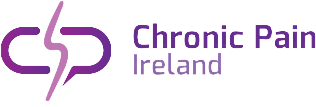Living With Chronic Pain
- Home
- /
- Living With Chronic Pain
Living with chronic pain means learning how to actively manage your pain. It can be challenging, but over time you will be able to increase the amount you can do and improve your overall quality of life. While future work and social pursuits will differ from the ones you enjoyed before chronic pain, life can still hold interest, self-worth, beauty and hope.
Health literacy: understanding your condition and how to manage it
Health literacy is a patient’s ability to seek, understand and utilise health information. Becoming more knowledgeable about your condition, medications and treatment options can help you regain control and put you back in charge.
Knowing your pain and learning how to actively manage it can help you to feel motivated, enhancing your attitude towards your health and future. Expecting and predicting pain can lead to feelings of hopelessness and a loss of agency.
When you understand your condition and treatment options, it enables you to work with your healthcare professional and take better control of your health.
Improving your communication skills can also help when talking to a family member or a co-worker about the nature of your chronic pain and asking for what you need.
Dr Brona Fullen, Associate Professor in the UCD School of Public Health, Physiotherapy and Sports Science, wrote an article for our newsletter called “Health Literacy in Patients With Chronic Pain” detailing exactly why health literacy and self-management skills are so important for people with chronic pain. Dr Fullen’s research areas of interest include the assessment and rehabilitation of people with chronic pain in a range of conditions including musculoskeletal dysfunction, obesity, and spinal cord injury.
. . .
Implementing self-management techniques for chronic pain
You might be reading this having just been told you have chronic pain, maybe your treatment is not giving you as much relief as you would like or maybe you’ve been told there’s nothing more we can do for you. Don’t despair, there is still a lot that can be done to improve your situation.
Chronic Pain Ireland’s self-management approach is based on a biopsychosocial model of health, which simply means that people get ill, not just bits of bodies.
We look at the following:
-
- Bio: body parts, symptoms, adaptations, medication, side effects, sleep, fatigue
- Psycho: thoughts and feelings, attitudes, beliefs, emotions, reactions
- Social: other people, society, the things people say.
Impacts like stress, anxiety, over-doing things and poor sleep often get confused with the condition itself and can make a difficult situation much worse.
It is important to take control wherever possible. This can be done by becoming more knowledgeable and improving your understanding of your condition and health, whilst building skills in relaxation, stress management, pacing and challenging negative thinking. In simple terms, it is about all the things that you – and only you – can affect and influence.
. . .
A different perspective on pain: what does “improve” mean?
Self-management can help you to improve the quality of your life significantly. What counts as ‘improve’ varies from person to person.
Some people report that they:
-
- have fewer flare ups
- feel more in control
- have improved their relationships
- feel less stress
- sleep better
- can go back to work or stay in it
How much your quality of life improves depends largely on the individual rather than the cause of their pain.
Obviously, everyone wants less pain. Many people report that they can positively manage their health by reducing the things that trigger pain and increase the things that ease it. Many say that they feel better in themselves and have turned the tables on their health so that they are in charge of their life.
Self-management is especially concerned with addressing well-being. The experience of pain is a combination of sensation and reaction, or some might describe it as pain and suffering. If you can change the reaction the suffering component changes significantly.
. . .
The relationship between pain and stress
We know that pain is stressful and stress makes pain worse, often called wind up. You could be going from flare up to flare up feeling increasingly stuck and desperate. This may feel like your pain is getting worse, but it might actually be that stress levels are driving the flare up. So, what started as a response to a difficult situation has now become part of the problem itself, in other words, pain and stress are glued together. The good news is that stress is something you can do something about. For example, learning to relax helps to distract you from pain, feel calmer, think calmer and maybe react differently to the things that others say. This again is all about reducing stress (physical and emotional).
Self-management encourages you to look at all aspects of life and improve whatever you can at the time. Chronic Pain Ireland’s self-management workshops are designed to provide you with the tools to self-manage and better understand your condition.











